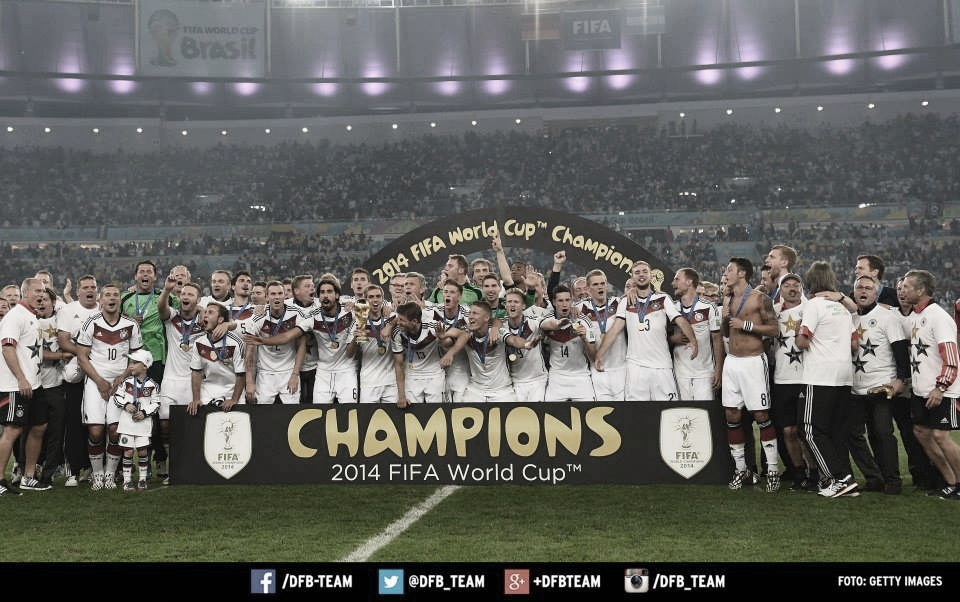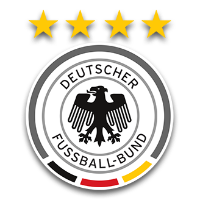

Germany
1900
The German national soccer team, known as "Die Mannschaft" (The Team), has been one of the most dominant and successful forces in the history of world soccer. Since its founding in 1900 and its first official match in 1908, Germany has amassed an impressive number of titles and produced some of the sport's greatest players and coaches. The following is an extensive history of the German national team, taking an in-depth look at each of its successes and key moments.
Early Years and Foundation
The German Football Federation (DFB) was founded in 1900, but the German national team's first official match was not played until April 5, 1908, against Switzerland in Basel, with a 5-3 defeat. These early years were marked by the search for an identity and style of play in a context where soccer was still being established in Europe. The DFB affiliated with FIFA in 1904, showing an early commitment to the international development of the sport.
In its first two decades, Germany experienced mixed results in friendlies and minor competitions. World War I interrupted the development of soccer in the country, and it was not until after the conflict that the national team began to establish itself as a serious force on the international stage.
The Impact of World War II and the Miracle of Berne (1954)
After World War II, Germany was excluded from international competitions until 1950. This period of sporting isolation ended with its re-entry into FIFA and its participation in the 1954 World Cup in Switzerland. This tournament marked a turning point with the famous "Miracle of Bern". West Germany, under the leadership of Sepp Herberger, beat the favored Hungary in the final 3-2, despite having been defeated 8-3 by the same team in the group stage. This triumph was not only Germany's first World Cup title, but also a symbol of the country's post-war recovery and resilience.
Dominance in the 1970s: The Beckenbauer Generation
The 1970s were a golden era for German soccer. Under the leadership of Helmut Schön, West Germany won the 1972 European Championship and the 1974 World Cup. Franz Beckenbauer, known as "The Kaiser," was a central figure in these successes. In 1974, West Germany defeated the Netherlands in the World Cup final on home soil. This team also included legendary players such as Gerd Müller and Sepp Maier.
The Euro 1972 triumph was particularly significant, as Germany showed high-quality soccer, beating strong teams such as England and the Soviet Union. The 1974 World Cup victory, with Beckenbauer leading the team from the back, cemented Germany as a world soccer power.
Continuity of Success: The 1980s and 1990s
In the 1980s and 1990s, Germany continued to achieve success. In 1980, Germany won the European Championship under Jupp Derwall, beating Belgium in the final. In 1982 and 1986, Germany reached the World Cup finals, but was defeated by Italy and Argentina, respectively.
In 1990, under Franz Beckenbauer, now as coach, West Germany won its third World Cup title in Italy, beating Argentina in the final. This triumph was especially significant as it was the last before German reunification in 1990. The 1990 team was known for its defensive solidity and the ability of players such as Lothar Matthäus and Jürgen Klinsmann.
In 1996, unified Germany won the European Championship in England under the leadership of Berti Vogts. Oliver Bierhoff scored the golden goal in the final against the Czech Republic, securing the title for Germany in the first international tournament decided by this method.
Challenges and Renewal: 2000-2010
The beginning of the new millennium brought challenges and renewal for the German national team. At the 2002 World Cup, under Rudi Völler, Germany reached the final but lost to Brazil. This tournament marked Germany's resurgence on the world stage after a disappointing Euro 2000.
Jürgen Klinsmann took over as coach in 2004 and led the team to the semifinals of the 2006 World Cup in Germany. Although they did not win, the tournament revitalized enthusiasm for soccer in the country and showcased a new generation of talent.
Joachim Löw, who was Klinsmann's assistant, took the reins in 2006. Under his leadership, Germany adopted a more attacking and attractive style of play. At Euro 2008, they reached the final, but were defeated by Spain. However, these years marked the emergence of a new generation of players such as Philipp Lahm, Bastian Schweinsteiger and Lukas Podolski.
Consecration at Brazil 2014
The greatest achievement of the Löw era came at the 2014 World Cup in Brazil. With a team full of talent and cohesion, Germany showed dominant soccer throughout the tournament. In the semifinals, they starred in a historic 7-1 victory over Brazil. In the final, they defeated Argentina 1-0 with a goal by Mario Götze in extra time, winning their fourth world title.
This triumph was the result of years of development and planning, with a combination of experienced veterans and young talent. Players such as Manuel Neuer, Thomas Müller and Miroslav Klose, who became the top scorer in World Cup history during this tournament, were instrumental to the team's success.
Recent period and the 2018 World Cup
After the triumph in 2014, the German national team had ups and downs. They won the Confederations Cup in 2017 with a young team, which raised expectations for the 2018 World Cup in Russia. However, in a surprising turn of events, Germany was eliminated in the group stage, their worst performance at a World Cup since 1938.
This failure led to introspection and changes in the team structure. Joachim Löw remained as coach, but a process of renewal was initiated with the aim of returning to the top of world soccer.
The 2022 World Cup in Qatar
At the 2022 World Cup, Germany was looking to redeem itself after the failure in 2018. In the group stage, Germany showed moments of good soccer, but ultimately failed to advance beyond the round of 16. This result reflected the challenges and the need for a new generation of players to lead the team to future successes.
Throughout its history, the German national team has been synonymous with success, discipline and constant evolution. With four World Cup titles and three European Championships, "Die Mannschaft" remains one of the most respected and feared teams in the international arena. Their rich history is full of achievements that have left an indelible mark on world soccer, and they continue to be a role model for many other teams.


